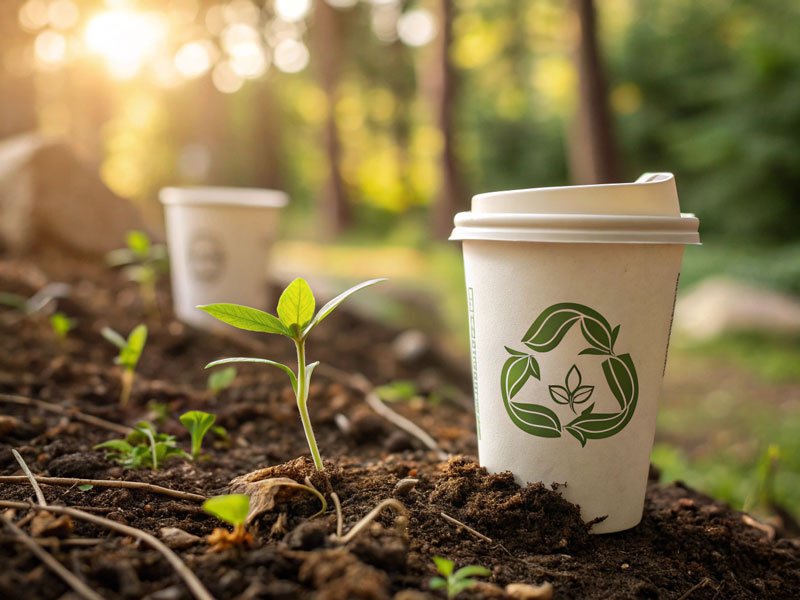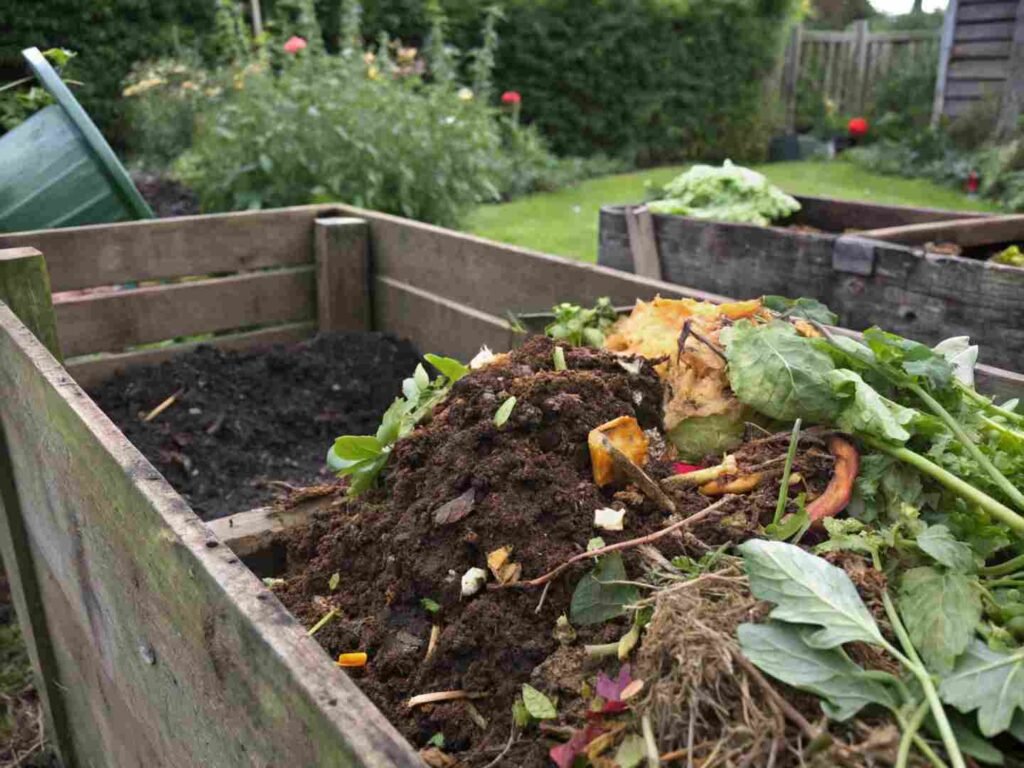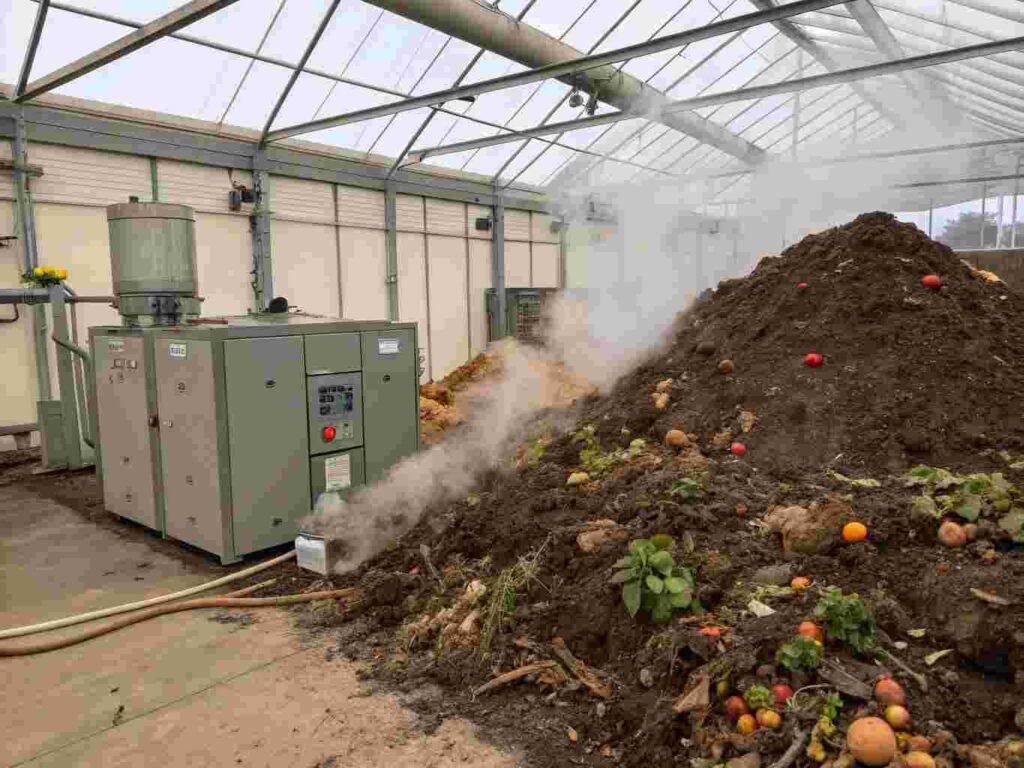Have you ever seen a green, leaf-like circular logo on packaging in supermarkets or shopping malls with the words "BPI Certified"? What does it mean? How does it differ from "biodegradable"?
BPI certification is more than just an environmental label. It's a rigorous certification system designed to ensure that products can truly decompose under specific conditions. This article will provide a deeper understanding of the scientific principles and applications of BPI certification.

BPI Certified
BPI stands for the Biodegradable Products Institute and is the leading certification body for compostable products in North America. BPI certification means a product has passed independent, third-party testing and is fully compostable in commercial composting facilities, breaking down completely within the specified timeframe and ultimately becoming safe compost.
The Difference Between "Biodegradable" and "BPI Compostable"
This is a common concept that people often confuse. While BPI-certified products are biodegradable, they are not necessarily compostable; composting requirements are more stringent.
Biodegradable: This term indicates that a material can be broken down by microorganisms, but does not specify the timeframe, environment, or safety of the final product. This is a very vague marketing term. This is a common phenomenon in nature; a plastic bag can take decades to decompose in soil, yet it can still be claimed to be "biodegradable."
BPI Compostable: This term is scientifically certified based on stringent standards. It requires that a product biodegrade within 90-180 days in an industrial composting environment (temperature, humidity, and oxygen levels), and that the final product is harmless to soil and plants.

BPI Certification: Why Home Composting Isn't Working?
| Feature | Industrial Composting | Home Composting |
|---|---|---|
| Temperature | Consistently maintained at 60–70°C. This “hot composting” environment is needed to break down certain polymers (like PLA) and to kill pathogens. | Cannot reach or maintain the required high temperatures; typically stays below 40°C. |
| Microbial Activity | Dominated by thermophilic microbes that efficiently break down complex polymers at high temperatures. | Dominated by mesophilic microbes, which decompose materials more slowly and cannot handle heat-dependent materials. |
| Management | Professionally managed with regular turning, and monitoring of temperature and moisture to ensure efficient decomposition. | Unmanaged or naturally maintained, relying on environmental conditions. Slower and less predictable process. |
Consumer How to Properly Handle Bpi Certified Products?
- Are there any industrial composting facilities in your area?
First, visit the Compost Facility Finder on the BPI website.
Contact your city's waste disposal company and ask if they have a dedicated organics collection or food waste composting program.
- Dispose of your waste correctly.
If your area has commercial composting services, please place BPI-certified products in designated organics recycling bins.
Remember: BPI-certified products cannot be thrown in recycling bins, as they will contaminate the plastic recycling stream.
- Common misconceptions.
- Myth 1: "BPI compostable" means it will naturally decompose in soil, oceans, or forests. (False!)
- Myth 2: "BPI-certified products" can be thrown directly in the trash. (False! This will only end up in landfills.)

Business Value for Business Owners
BPI certification is more than just an added cost for brands; it's a strategic investment in the long term:
- Enhanced Brand Image and Trust: With consumers prioritizing sustainability, the BPI certification mark is a powerful proof of sustainability, effectively combating the current "greenwashing" phenomenon in the market, helping brands stand out from the crowd and earn consumer trust.
- Regulatory Compliance: In certain regions, such as California, compostable product labeling is strictly regulated. BPI certification can help brands easily comply with regulations and avoid potential legal risks.
- Competitive Advantage: BPI certification is a gateway to the growing compostable product market. It can help your products stand out from competitors and attract environmentally conscious businesses.
Conclusion:
BPI certification is a scientifically rigorous set of standards and criteria. It provides a reliable tool for distinguishing truly eco-friendly products from false claims. Understanding and implementing BPI certification principles, whether as a consumer or a business, is an important step in promoting circular and sustainable development.
You can now carefully inspect your compostable products to see if they bear the BPI certification mark.
Orizon Biomaterials ( The compostable certification number of Shandong Orizon Biomaterials Co., Ltd. is: 10529118 ) is a BPI certified company. Users who want to customize compostable bags can consult us for product catalogs.





